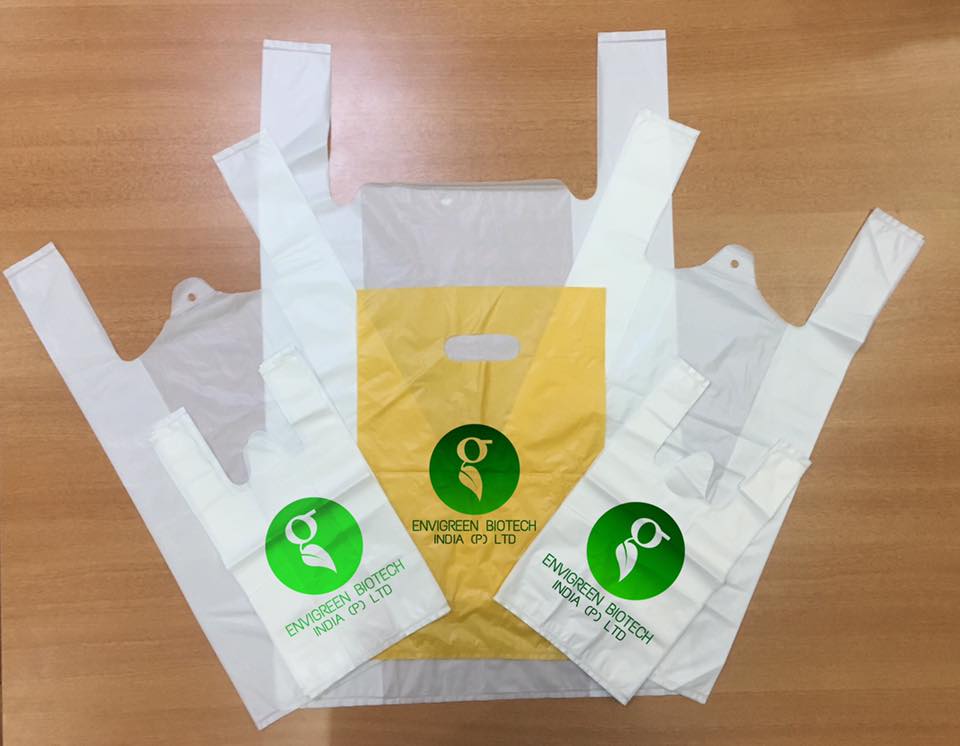Revolutionary Bengaluru-Based Biotech’s “Unplastic” is Out
Nestled within the market for consumer plastics is an ever-growing industry for bioplastics. In an increasingly sustainability-driven world populated by more conscious consumers and green-minded individuals than ever before, this growing focus on bio-derived plastics should come as no surprise. And a noteworthy addition comes in form of the 25-year-old green crusader, Ashwath Hegde, founder of EnviGreen Biotech, Bengaluru, who nurtures the dream of a plastic-free India.
Thanks to persistent green marketers like him, the true viability and environmental impacts associated with bioplastics are finally being noticed.

EnviGreen Biotech is the developer of a revolutionary material, possessing all the functionality and simplicity of conventional plastic, with none of its harmful effects to the environment – Unplastic
. Launched mid-last year, the bags decompose naturally in 60–180 days and have been certified plastic-free by the Karnataka State Pollution Control Board and global certification and testing firm TÜV SÜD South Asia.Ashwath, who has patented EnviGreen, claims the manufacturing process for these bags is entirely different from that of plastic, cloth, or paper bags. The company uses 12 ingredients, including potato, tapioca, corn, natural starch, vegetable oil, banana, and flower oil.
The ”Unplastic” is even edible and will cause no harm to animals if ingested. If placed in a glass of water at normal temperature, an EnviGreen bag dissolves in a day. And when placed in a glass of boiling water, it dissolved in just 15 seconds!
The material has a wide variety of mechanical uses that allow it to replace standard plastic components. It dissipates electricity, is antistatic in nature and acts as a good oxygen barrier. This means that it can be utilised in wrapping of electronics, is dust-repellant and can help in corrosion prevention. The material also provides good resistance to oil and grease.
“When Mangalore City Corporation implemented a similar ban in 2012, I took that as an opportunity to delve into an eco-friendly substitute for this,” says Hegde. “Consequently, the product that we have here is a culmination of four years of extensive research and experiment conducted by a team of scientists and environmentalists from across the world,” he adds.
“These bags degrade naturally when discarded and cause no harm to animals if they consume it. They might pass off as plastic bags to the uninitiated, but are completely non-toxic to the environment.”
Ashwath has now set up a factory in Bangalore that produces 1,000 metric tonnes of bags every month. “We had this unique idea of empowering farmers in rural Karnataka by sourcing all our raw materials from them. We are also planning to distribute seeds to help them produce the amount of materials required to make the bags,” he says.
Currently, the company has not started full-fledged sales in India, but the bags are already available in Qatar and Abu Dhabi.

































Great work done by Ashwath Hegde sir
Salute you sir